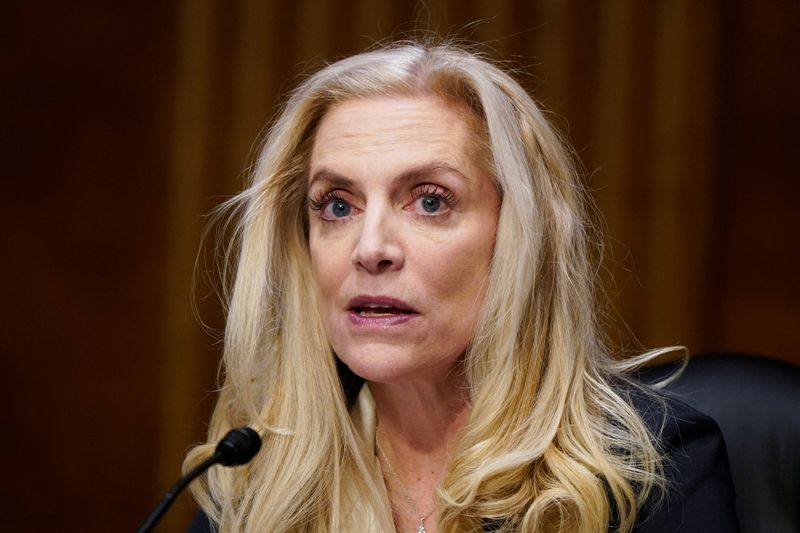By Howard Schneider
WASHINGTON (Reuters) - The U.S. Federal Reserve will maintain tight monetary policy "for as long as it takes to get inflation down" Fed Vice Chair Lael Brainard said Wednesday in the central bank's latest affirmation that fighting price pressures is its chief priority.
"At some point," Brainard said, the risks that Fed policy poses to economic growth will increase, and the central bank's evaluation "will become more two-sided."
But for now, "monetary policy will need to be restrictive for some time to provide confidence that inflation is moving down" to the Fed's 2% target, Brainard said in remarks prepared for delivery to the Clearing House and Bank Policy Institute.
Though a slowing of inflation in July was "welcome," Brainard said, the Fed will need "several months of low monthly inflation readings to be confident that inflation is moving back down to 2%."
"Our resolve is firm," she said. "If history is any guide, it is important to avoid the risk of pulling back too soon," and easing interest rates before inflation is under control.
Brainard is the latest ranking Fed official, following Fed Chair Jerome Powell in a high-profile address last month, to lay the groundwork for an extended fight against the worst outbreak of inflation in 40 years, and note the potential costs involved. Her use of the phrase "as long as it takes" echoed pledges by other central bankers in the past to do "whatever it takes" to rescue their economies from crisis - applying that same level of commitment to reducing prices.
Growth is slowing, Brainard noted, but the Fed will still need to be sure inflation is controlled.
There is a possibility, she said, that the current strong U.S. labor market means job losses may be more limited than in past slowdowns, with businesses inclined to hold onto hard-to-find employees rather than resorting to layoffs.
"This may mean that slowing aggregate demand will lead to a smaller increase in unemployment than we have seen in previous recessions," she said. "But it is too early to draw any definitive conclusions."

The Fed next meets on Sept. 20-21, and is expected to approve another rate increase of either one-half or three-quarters of a percentage point.
Brainard did not appear to lean in either direction in her prepared remarks, saying only that policy would be moving "to an appropriately restrictive stance." Traders in contracts tied to the federal funds rate expect the larger increase.